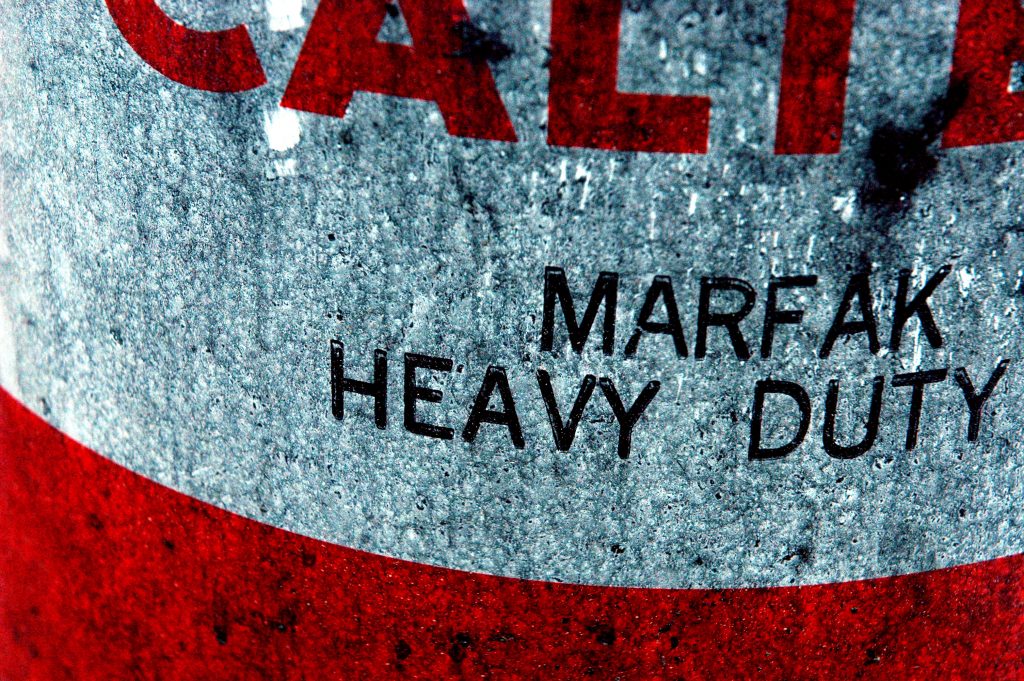 When someone decides to have surgery, they do not typically anticipate a lawsuit arising out of that surgery. Typically, a headache is not a common side effect of getting a new joint implanted into a toe, but when issues of joinder and diversity jurisdiction complicate a lawsuit, a headache is what the patient gets. Unfortunately, that’s exactly what happened to a patient in eastern Louisiana. Kale Flagg had an unsuccessful toe-joint replacement surgery and filed a lawsuit in state court asserting medical malpractice claims against Dr. Denise Elliot and a product defect claim against both Stryker Corp. and Memometal Inc. USA.
When someone decides to have surgery, they do not typically anticipate a lawsuit arising out of that surgery. Typically, a headache is not a common side effect of getting a new joint implanted into a toe, but when issues of joinder and diversity jurisdiction complicate a lawsuit, a headache is what the patient gets. Unfortunately, that’s exactly what happened to a patient in eastern Louisiana. Kale Flagg had an unsuccessful toe-joint replacement surgery and filed a lawsuit in state court asserting medical malpractice claims against Dr. Denise Elliot and a product defect claim against both Stryker Corp. and Memometal Inc. USA.
When no plaintiff is a citizen from any state which a defendant is a citizen, jurisdiction issues may arise. If that condition is met, a lawsuit filed in state court may be removed to federal court. See 28 U.S.C. § 1332(a)(1). As out-of-state defendants, Stryker and Memometal removed the case to federal court. However, Mr. Flagg and Dr. Elliot are both citizens of Louisiana. Here, the District Court held that Mr. Flagg failed to exhaust all of his administrative remedies against Dr. Elliot, and therefore, naming Dr. Elliot as a defendant in the case was improper. Once Dr. Elliot was dismissed from the case by the District Court, diversity jurisdiction existed and the case could be heard in federal court.
Mr. Flagg appealed the judgment of the District Court dismissing the doctor from the case. The Court of Appeals affirmed the District Court’s decision. In determining that the doctor was improperly joined to the case, the court looked at whether Mr. Flagg would be able to recover against the doctor in state court.
 Louisiana Personal Injury Lawyer Blog
Louisiana Personal Injury Lawyer Blog


 Grease is often used to make foods easy to remove from pans and baking sheets. It creates a slippery, smooth surface that allows most foods to slide right out of the pan. Unfortunately, when grease meets a wood floor, humans walking over can slide around as well. Sharon Tomlinson found this out the hard way as a waitress led her to a table in a Daisy Dukes restaurant in May of 2011. It is believed that airborne grease particles settled on the floor, causing Mrs. Tomlinson to fall and injure her knee when she stepped off of a commercial rug and onto the allegedly greasy floor.
Grease is often used to make foods easy to remove from pans and baking sheets. It creates a slippery, smooth surface that allows most foods to slide right out of the pan. Unfortunately, when grease meets a wood floor, humans walking over can slide around as well. Sharon Tomlinson found this out the hard way as a waitress led her to a table in a Daisy Dukes restaurant in May of 2011. It is believed that airborne grease particles settled on the floor, causing Mrs. Tomlinson to fall and injure her knee when she stepped off of a commercial rug and onto the allegedly greasy floor.  Generally, citizens are not held to criminal standards that do not yet exist. When a citizen takes action, he or she is held to the criminal standards in place at the time of the act. To retroactively apply criminal laws is impermissible because that application tends to violate principles of fairness and due process.
Generally, citizens are not held to criminal standards that do not yet exist. When a citizen takes action, he or she is held to the criminal standards in place at the time of the act. To retroactively apply criminal laws is impermissible because that application tends to violate principles of fairness and due process. Contracts between parties working toward a common goal can sometimes result in detail-oriented litigation when something goes wrong. When those parties need to subcontract with a third party, the responsibility for that third party if something goes wrong can be a point of contention.
Contracts between parties working toward a common goal can sometimes result in detail-oriented litigation when something goes wrong. When those parties need to subcontract with a third party, the responsibility for that third party if something goes wrong can be a point of contention. Dot your i’s and cross your t’s. We’ve heard it since kindergarten. Yet, sometimes it is easy to forget the basics when a case seems to be open-and-shut.
Dot your i’s and cross your t’s. We’ve heard it since kindergarten. Yet, sometimes it is easy to forget the basics when a case seems to be open-and-shut.  The bond between people and their dogs can be one as close as family. Whether they serve as pets, guides, or even co-workers, dogs can provide a type of comfort and comradeship that is completely unique. It is sometimes easy to forget that dogs are animals that can chase, scratch, and even bite on a moment’s notice. While most people don’t like to believe that their canine companions would hurt others, many dogs—even the most docile or trained—are capable of causing harm quickly, and it is important to know how to handle these situations. This issue was explored in a case appealed to the Louisiana First Circuit Court of Appeal after an incident at Louisiana State University.
The bond between people and their dogs can be one as close as family. Whether they serve as pets, guides, or even co-workers, dogs can provide a type of comfort and comradeship that is completely unique. It is sometimes easy to forget that dogs are animals that can chase, scratch, and even bite on a moment’s notice. While most people don’t like to believe that their canine companions would hurt others, many dogs—even the most docile or trained—are capable of causing harm quickly, and it is important to know how to handle these situations. This issue was explored in a case appealed to the Louisiana First Circuit Court of Appeal after an incident at Louisiana State University. A common litigation tactic for plaintiffs is to bring cases in federal court to obtain greater damage awards. However, a plaintiff must have a viable claim under federal law or their case will be dismissed by the federal district court for lack of jurisdiction.
A common litigation tactic for plaintiffs is to bring cases in federal court to obtain greater damage awards. However, a plaintiff must have a viable claim under federal law or their case will be dismissed by the federal district court for lack of jurisdiction. Worker’s compensation (WC) is a system designed to compensate workers for injuries that occur on the job. The system also helps to spread the risk of loss among numerous employers, similar to an insurance arrangement that employers pay into. Still, employers have an interest in ensuring that WC claims are valid in order to keep overall costs down. As a result, WC cases can lead to bitter disputes between workers and their employers.
Worker’s compensation (WC) is a system designed to compensate workers for injuries that occur on the job. The system also helps to spread the risk of loss among numerous employers, similar to an insurance arrangement that employers pay into. Still, employers have an interest in ensuring that WC claims are valid in order to keep overall costs down. As a result, WC cases can lead to bitter disputes between workers and their employers.  Under Louisiana law, an owner of a building is not necessarily responsible for all injuries resulting from any risk posed by the building. Owners are only responsible for those injuries caused by defective conditions, and courts have recognized that defendants have no general duty to protect against hazards that are “open and obvious.” The logic behind this approach is that when a risk is open and obvious to everyone, the probability of injury is low. As a result, the owner of the premises is not required to go to the trouble and expense of fixing the condition that could be easily avoided by prudent persons.
Under Louisiana law, an owner of a building is not necessarily responsible for all injuries resulting from any risk posed by the building. Owners are only responsible for those injuries caused by defective conditions, and courts have recognized that defendants have no general duty to protect against hazards that are “open and obvious.” The logic behind this approach is that when a risk is open and obvious to everyone, the probability of injury is low. As a result, the owner of the premises is not required to go to the trouble and expense of fixing the condition that could be easily avoided by prudent persons. Louisiana citizens interact with contract law every day, in many cases without even realizing it. Whether buying groceries at a supermarket with a credit card or installing a new iPhone app, countless purchases are governed by consumer agreements. What may be even less known to purchasers is that many of these agreements include an arbitration clause, which provides that any disputes arising out of that agreement must be handled by an arbitrator rather than a court. Arbitration is a form of “alternative dispute resolution” in which an arbitrator — typically a certified attorney — evaluates the parties’ claims and renders a binding decision as to who should prevail. In general, companies prefer arbitration because it costs less than litigation. But because the rules of arbitration can vary significantly from the rules of court, the consumer does not always benefit from being kept away from the courthouse. The validity of arbitration clauses is a common point of contention. Although Louisiana generally favors arbitration, the legislature has enacted the Louisiana Arbitration Act (“LLA”) (
Louisiana citizens interact with contract law every day, in many cases without even realizing it. Whether buying groceries at a supermarket with a credit card or installing a new iPhone app, countless purchases are governed by consumer agreements. What may be even less known to purchasers is that many of these agreements include an arbitration clause, which provides that any disputes arising out of that agreement must be handled by an arbitrator rather than a court. Arbitration is a form of “alternative dispute resolution” in which an arbitrator — typically a certified attorney — evaluates the parties’ claims and renders a binding decision as to who should prevail. In general, companies prefer arbitration because it costs less than litigation. But because the rules of arbitration can vary significantly from the rules of court, the consumer does not always benefit from being kept away from the courthouse. The validity of arbitration clauses is a common point of contention. Although Louisiana generally favors arbitration, the legislature has enacted the Louisiana Arbitration Act (“LLA”) (